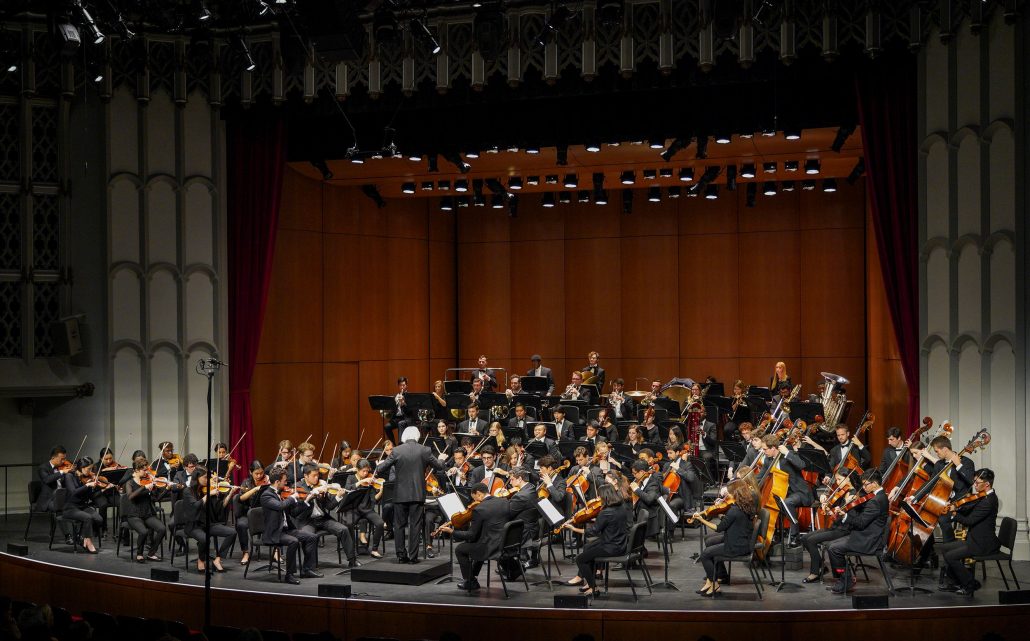Thornton Symphony to conquer ‘new world’ at second performance

The USC Thornton Symphony has been performing on campus and around the country since the 1900s, with notable alumni performing in prestigious concert halls across the country and the world. Students in the symphony put in long hours both inside and outside of the classroom. And that is no different for the symphony’s performance this Friday, its second concert of the semester.
Friday’s performance will be conducted by Sharon Lavery, a Thornton School of Music associate professor and resident conductor of the symphony. Lavery teaches classical performance and composition, has conducted at Carnegie Hall and has served as music director of the Downey Symphony Orchestra since 2007.
“I am most excited about seeing the students’ smiles of pride and accomplishment as they exit the stage after the last note,” Lavery said. “This will have been, for many of them, their second concert in just five short weeks of school.”
The symphony’s rehearsal schedule is intense, with hours of practice leading up to the concert.
“The two-week preparation period begins with what we call sectionals, where we separate the wind players from the string players and invite various faculty members into the rehearsal to help coach them,” Lavery said. “For the second rehearsal, we bring everyone together for what we call a ‘tutti’ — meaning ‘all’ in Italian — rehearsal. By the time we get to Friday night’s concert, we will have had three more rehearsals after that.”
Students will perform the work of Antonín Dvorák, a Czech composer born in 1841. His compositions fuse the sounds of eastern Europe with influences from his time in the United States. They will be playing two pieces: “Carnival Overture” and “New World Symphony.”
“In classical music, it’s not often that you find European composers influenced by American music,” said Aaron Blick, a second year graduate student studying musical performance and the symphony’s principal bassist. “Part of what makes this concert special is that a lot of [the music] is based on things that he heard when he was traveling through America in the 1800s.”
The bass, according to Blick, is an essential part of the symphony.
“The bass line is the lowest register, so we are playing all the lowest notes that you hear in the orchestra, most of the time in a rhythmic and supportive context,” Blick said. “It is the foundation of all the sound that is being put out.”
Blick and the other bassists work with professor David Allen Moore, a Thornton graduate and renowned bassist. The opportunity to work with Moore is what draws many students — including Blick himself — to the program.
“David’s an incredible teacher and musician,” Blick said. “Most of my lessons are spent working on new technical things that he’s been working out himself. A lot of times they are new ideas and ways of approaching the instrument that I haven’t really come across before.”
The bassists are a close-knit group. They spend time together outside of the classroom and create a supportive learning environment within the symphony. They spend long hours together — when walking through Thornton, it is not uncommon to hear students practicing outside in the sunny California atmosphere. And they make time for one another outside of rehearsal, whether at beach days or just hanging out.
“It is incredibly special,” Blick said. “Everyone here is extremely supportive.”
Admission to the symphony’s performance Friday is free and open to the public. The performance begins at 7:30 p.m. in Bovard Auditorium.

